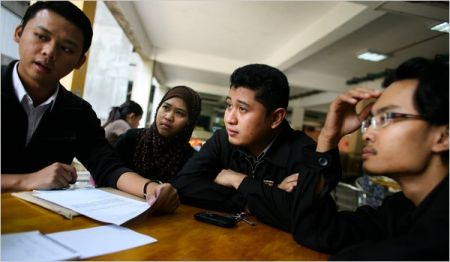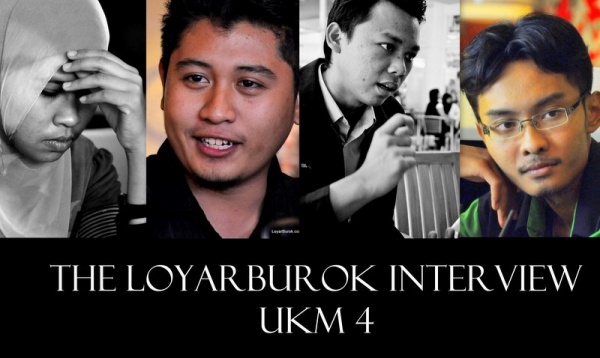King Chai explores and shares his views on the upcoming Round Table Discussion on UUCA amendments.
The recent announcement by the 6th Prime Minister of Malaysia, Dato’ Sri Najib Tun Razak on 24 November 2011 to amend Section 15 of the University & University Colleges Act 1971 (UUCA) to allow political freedom for university students is a bold move – something that civil society and students have been fighting for since it became law over 40 years ago.
However, let us not get carried away by the announcement and think that this is the end to the struggle for student liberty and university autonomy.
It has never been solely about Section 15 or students’ right to express themselves politically. It has always been about the recognition of the ‘inherent dignity and of the equal and inalienable rights of all members of the human family as the foundation of freedom, justice and peace’, university students included.
Freedom of speech, expression and association are just some of the fundamental liberties most commonly discussed (also most commonly and consistently violated) and the list of rights really doesn’t stop there. In fact, it’s non-exhaustive.
This coming 17 November 2011 marks the first of the “Round Table Discussions on Amendments to the UUCA”, hosted by the Deputy Minister of Higher Education, Dato’ Saifuddin Abdullah. Of course, if you have been keeping up with developments of academic freedom in Malaysia, the UKM4 case and also the recent 31 October decision by the Court of Appeal declaring Section 15(5)(a) of UUCA invalid, you’ll know that he is no stranger to the cause. I was informed that members of civil society, representatives from different interest groups and academicians will be attending the discussion to present their views and make recommendations to the Ministry on amendments to be made, in line with the Prime Minister’s announcement to allow political freedom for university students.

However, many of us within civil society are still not looking at the bigger picture of student liberty and university autonomy. Let’s talk about other problems within the current amendments of the Act, beyond Section 15 of the UUCA.
For instance, Section 3 of the UUCA gives power to the Minister of Higher Education to direct and instruct public institutions of higher learning (IPTA). This section is the main link between all IPTAs and the government, and removes true university autonomy because the Minister has the prerogative to direct and instruct universities as he sees fit.
Besides that, Section 4A & 4B gives the Minister power to appoint Vice Chancellors or any positions within IPTAs as he sees fit, and the choice to institute a select committee to ‘advise’ him with regards to the appointment. This particular section makes political appointees out of certain positions within the university, and such individuals are ultimately subservient to the Minister’s expectations instead of fulfilling their responsibilities as members of the academic institution. In this respect, there is a risk that they will no longer place the IPTA’s academic interest as their main priority.
Looking beyond Section 15 which prohibits political expression and freedom of association of students, Section 16 allows the Vice Chancellor the power to suspend or dissolve any clubs/associations or group of students for “disrupting” peace on campus and for jeopardizing the interests of the university. In my humble opinion, that can be interpreted as ANYTHING that the Vice Chancellor thinks can disrupt peace on campus or jeopardize the interests or image of the university. In short, almost anything under the sun can be misconstrued as such!
Following that, Section 16B describes the internal university proceeding that is used to try students who have been accused of committing an offense under the UUCA. Subsection (3B) says that the university student accused of committing offenses under the Act can only be represented by another student or staff of the university in the internal disciplinary proceeding. This is a clear violation to a student’s right to have a fair trial and legal representation during proceedings which will be attended and participated by anyone the Vice Chancellor chooses, such as the university’s legal advisor or law faculty members who are equipped with legal experience or knowledge. It sure doesn’t seem fair when the scales are tipped and weighed against the student at the start of the proceedings itself.
Those are just some of the sections I hope will be brought up in the round table discussion on 17 December to safeguard the interests of university students and move towards truly recognizing the unalienable rights of the students.
The recent passing of the Peaceful Assembly Bill at the Dewan Rakyat has courted a chorus of disappointments and public anger due to the lack of public consultation, the bill’s ‘mischievous’ definition and the total prohibition of street protests. If the government is serious about extending political freedom to university students and committed in recognizing their fundamental liberties as human beings in line with international norms and standards of the same matter, then public consultations and open dialogue with the public and members of the civil society must be held. Now, let the first round table discussion on amendments to the UUCA be the trailblazer to a new era of student liberty and academic freedom.
If you have views or perspectives that you would like to bring up for the round table discussion, feel free to share them with us by commenting below or email me directly at [email protected].

